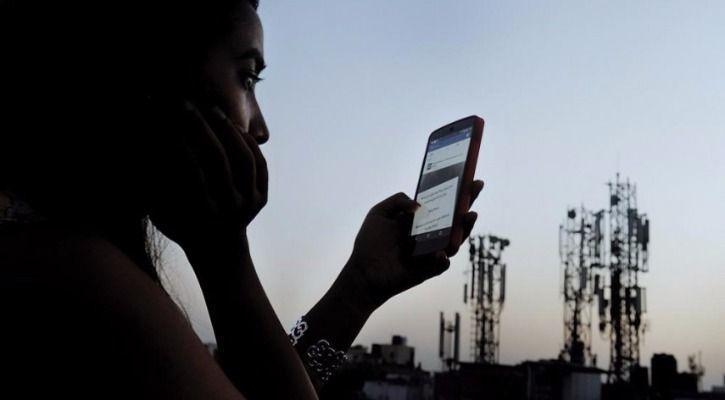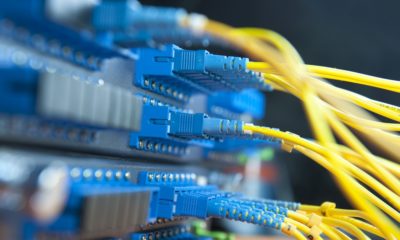According to the latest data released by the Nigerian Communications Commission (NCC), internet subscriptions stood at 159 million in August ’23, reflecting a 4.4% y/y increase.
Meanwhile, on a m/m basis, internet subscriptions declined marginally by -0.3%. Internet subscriptions remain resilient despite visible changes in consumption patterns. Indeed, the importance of social connectivity remains high, even in times of economic challenges.
Social media platforms, messaging apps, and online communities continue to be crucial for maintaining connections, sharing information, and staying informed, driving sustained internet usage.
Furthermore, Nigeria has witnessed a surge in entrepreneurship and digital innovation. Startups
and small businesses often rely on the internet for their operations, from marketing to sales.
This entrepreneurial ecosystem contributes to the consistent demand for internet services.
In a separate report by the National Bureau of Statistics (NBS), which broke down subscription levels by states, Lagos state recorded the highest number of active internet subscribers in Q3 ’23 with 19.2 million, then Ogun state with 9.5 million and Kano with 8.7 million.
Meanwhile, Bayelsa recorded the lowest with 1,2 million. The demand for and accessibility of internet services vary among states.
The differences in internet subscriptions between Lagos and Bayelsa can be attributed to population density, infrastructure development, business ecosystems as well as educational and entertainment centers.
Returning to the NCC data, MTN accounted for the largest share (38.6%) of internet subscriptions
in August ’23.
Meanwhile, Globacom, Airtel, and 9mobile accounted for 27.9%, 27.3%, and 6.3% respectively. It is worth noting that Airtel, 9mobile and Globacom recorded marginal m/m increases in total internet subscriptions at +0.1%, +0.3%, and +0.1% respectively. Meanwhile, MTN recorded a -0.4% decline during this period.
Based on MTNN ‘s 9-month financial results (Jan-Sep ’23), service revenue increased by 21.7% y/y. The y/y uptick can be attributed to increases in both data revenue (15.3% y/y). Despite the commendable revenue generation, we saw a notable contraction in profit due to rising operating expenses.
The latest national accounts released by the NBS show that telecommunications grew by 7.7% y/y and accounted for 13.5% of total GDP in Q3 ’23. If Nigeria’s ICT sector maintains double-digit growth over five consecutive years, it could lead to substantial economic expansion.
Our in-house estimate suggests a GDP growth rate in the range of 1-2 percentage points per year. This
projection considers the sector’s direct contribution to GDP, as well as its indirect impact on other sectors through increased productivity, innovation, and connectivity.
Broadband penetration increased to 45.6% in August ’23 vs 44.4% recorded in the corresponding period of 2022. The FGN had set a broadband penetration target of 70% by 2025. This goal was outlined in the National Broadband Plan (NBP) 2020-2025. The current gap can be closed by 2025.
However, roadblocks need to be addressed. Such as delays and difficulties in obtaining the right of way for laying fiber optic cables which are slowing down broadband deployment.
In 2020, the Nigerian Governors’ Forum resolved that telecom operators should pay a RoW fee of N145 per linear meter of fiber. Notably, only Nasarawa, along with Kaduna, Ekiti, Katsina, Plateau, and Ekiti,
opted for zero charges.
Meanwhile, the FCT had disclosed a charge of N14.50 per linear meter RoW charges (a 90% reduction from the regular fee) in 2022.
Effectively mitigating RoW challenges in Nigeria demands a nuanced, strategic approach. Streamlining regulatory frameworks and establishing transparent fee structures are imperative to diminish unnecessary delays and financial uncertainties for infrastructure developers. Additionally, introducing digital platforms for RoW processes aligns with global best practices, enhancing administrative efficiency and minimizing bureaucratic hurdles.
Engaging stakeholders through sustained dialogue and community sensitization becomes paramount, fostering a collaborative environment conducive to infrastructure development. Public-private partnerships should be strategically leveraged, with a focus on incentivizing private sector involvement in broadband deployment.
The creation of standardized RoW agreements and dedicated task forces can institutionalize efficient decision-making processes, ensuring consistency and fair negotiations.
Regarding opportunities within ICT, digital transformation services feature on the list. Businesses are increasingly seeking innovative solutions such as cloud computing, cybersecurity, and data analytics to enhance efficiency and competitiveness.
Furthermore, telecommunications infrastructure development continues to offer avenues for expansion and upgrades, including the deployment of advanced technologies such as 5G. This addresses the escalating demand for data and connectivity in a rapidly digitizing society. Cybersecurity Services also remain important, the increasing reliance on digital platforms necessitates robust solutions to safeguard businesses from evolving cyber threats.
The FGN has shown a commitment to expanding digital infrastructure. Initiatives aimed at improving broadband penetration and increasing internet accessibility, especially in rural areas, contribute to the overall growth and resilience of internet subscriptions and by extension, the broader economy.


 Naira4 weeks ago
Naira4 weeks ago
 Naira4 weeks ago
Naira4 weeks ago
 Travel4 weeks ago
Travel4 weeks ago
 Jobs4 weeks ago
Jobs4 weeks ago
 Naira4 weeks ago
Naira4 weeks ago
 Naira3 weeks ago
Naira3 weeks ago
 Investment4 weeks ago
Investment4 weeks ago
 Travel4 weeks ago
Travel4 weeks ago



























